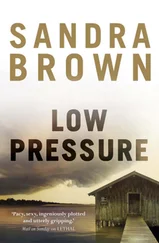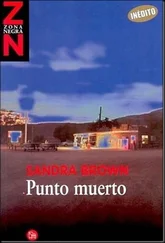“So were you.”
“Yes.”
Raley hoped the camera was capturing the remorse evident in Fordyce’s face and voice. His shoulders no longer seemed so wide, his posture not so proud. He was staring at his hands as they rested on his desk. Was he having a Pontius Pilate moment, staring at the guilty stains on his hands, which only he could see?
Raley didn’t let himself be moved by the man’s penitent demeanor. “It felt out of whack, it had a snag, but you didn’t look too hard to find out why, did you?”
“No.” Slowly, Fordyce raised his head and looked directly into the camera. “I didn’t look too hard because the case involved policemen, decorated heroes of the police force, and I was about to announce my candidacy for the office of attorney general. An AG depends on the solid support of law enforcement agencies. I didn’t want to alienate peace officers statewide by suggesting that a few were involved in a cover-up and very possibly murder.”
Raley realized he was holding his breath. He glanced at Britt. She still held the camcorder steady on Fordyce, but she looked over at Raley to see if he realized the significance of the startling, self-indicting statement they’d just recorded.
She seized on it, asking, “What happened in the interrogation room with Cleveland Jones?”
Her voice, her demeanor, were gentle, nonthreatening, nonjudgmental, suggesting that she and the AG were the only ones present and that she had an earnest and unselfish interest in his cathartic admission.
So it came as a mild surprise to Raley when Fordyce said, “I don’t know, Britt.” He addressed her through the camera lens. “I shirked my duty on the Suzi Monroe matter because it was expedient. It was a self-serving evasion of responsibility that cost Mr. Gannon here dearly. I’m sorry for that. If I could, I would give him back those years of disgrace he’s unjustly suffered, but I can’t.
“But I don’t know what happened in that interrogation room. Or how Cleveland Jones died, or who started the fire.” When he saw that Raley was about to speak, he held up his hand, forestalling him. “You don’t have to take my word for it. It’s fact. You can check it out.”
“Tell us,” Britt said.
“I left my office in the courthouse a little before six o’clock, bound for the police station.”
“Why were you going to the police station that late in the day?”
“To pick up some new evidence on a case that was coming up for trial. I was to meet the investigating officer at the reception desk. I was just about to enter the building when the fire alarm sounded. I rushed inside. There are survivors, people who were in the lobby at the time, who can support this.
“At first, we thought it was a false alarm. In that old building, something was always malfunctioning. Several people cracked jokes about it. Someone asked if it was a fire drill.”
He paused, staring into space, as though re-creating that scene in his mind. “But almost immediately we smelled smoke and realized it was the real thing. I hustled people out through the main entrance and then ran along the corridors on the ground floor, shouting at people in the various offices to exit as quickly as possible.” He paused again, shrugged. “You know the rest.”
Britt said, “You’re being modest. You went up the stairwell and began escorting people out from upper floors.”
He nodded.
“So you truly were a hero,” she said.
“That day, I did the right thing.” Looking at Raley, he added, “It was later that I didn’t.”
Raley thought he must be the best liar in the history of the art, or he was telling the truth. “You’ve got witnesses who can testify that, when you walked into the police station, the alarm was already sounding?”
“Yes. Even police personnel who were at the reception desk that day.”
“Had you been there earlier?”
“Earlier that day, you mean? No. That, too, can be substantiated. Even the district attorney has to sign in at the reception desk.”
“The register was destroyed in the fire.”
“I wasn’t there earlier, Mr. Gannon. I didn’t even leave my office for lunch, and my secretary can attest to that. It became a memorable day, so even minor details took on relevance.”
“You never questioned Cleveland Jones?”
“No. I swear it. I didn’t even know what he looked like until his picture, his mug shot, was published in the newspaper days following the fire.”
Britt said, “We’ve heard from a reliable source that Pat Wickham, Senior, called you, asking that you go over there and threaten to throw the book at Jones if he didn’t confess to assault.”
Pat Jr. wasn’t exactly what Raley would call a “reliable source,” but Fordyce seemed to believe her.
He said, “Pat Wickham did call me. Earlier that afternoon. He said he had a skinhead in custody. A career criminal and general lowlife that they’d wanted to put away for a long time. But Cleveland Jones knew how to work the system, he said. He was dicking them around, and I quote. He said there was to be no plea bargain this time, that they had a chance to nail Cleveland Jones, but good.
“He asked me to provide some additional pressure that might result in a confession, which would save the state the cost of a trial. He wanted me to go over there, talk to Jones, lay it on thick how bleak his future looked. But I was busy and I couldn’t get away right then. I told him I’d look in when I came over later in the day on the other errand.”
He closed his eyes for a moment, as though searching his memory. “I remember wondering why he was obsessed with this assault charge. That’s bad, but it wasn’t like Jones was accused of battery rape, multiple murder, or child molestation.” He leaned across his desk toward Raley. “What am I missing? Tell me.”
“I don’t have any proof.”
“I haven’t asked for any. What do you speculate happened?”
“I don’t know who actually made the arrest,” Raley told him. “That’s one of the details nobody was willing to share. What our source has told us is that Pat Senior, George McGowan, and Jay Burgess were looking for Jones and were determined to see that he got hard time. Given that, I assume one or any combination of the three picked him up. Either during the arrest or, more likely, in the course of questioning him, they got rough, and it resulted in the skull fractures that proved fatal.”
“You’re saying they beat him to death?”
“Probably his death was an accident. But he died, and they panicked. They had to do something to cover the crime.”
Fordyce frowned. “Fires are unreliable covers for murders. Those three would know that. Forensics would show that Jones didn’t die of fire-related causes.”
“True. What I suspect is that they set the contents of the wastebasket on fire in order to convince everyone that Jones went crazy in that room. They thought it would back up their lie of how irrationally he’d started behaving. They planned to put the fire out quickly. Create a little smoke, but nothing more. It would have served its purpose without too much harm being done.
“What they didn’t count on was their small fire getting sucked into the antiquated ventilation system and spreading rapidly through the infrastructure. Before they knew it, the blaze was burning out of control, engulfing the stories above them, causing the building to collapse on itself.”
“Realizing what they’d done, they saved those they could,” Britt said softly.
“But there were still seven bodies to dig out of the rubble,” Raley added.
“Jesus.” Fordyce rubbed his forehead as though it had begun to ache. When at last he lowered his hand and looked at them, he said, “Three senior detectives questioning one skinhead punk? Why was that?”
Читать дальше












